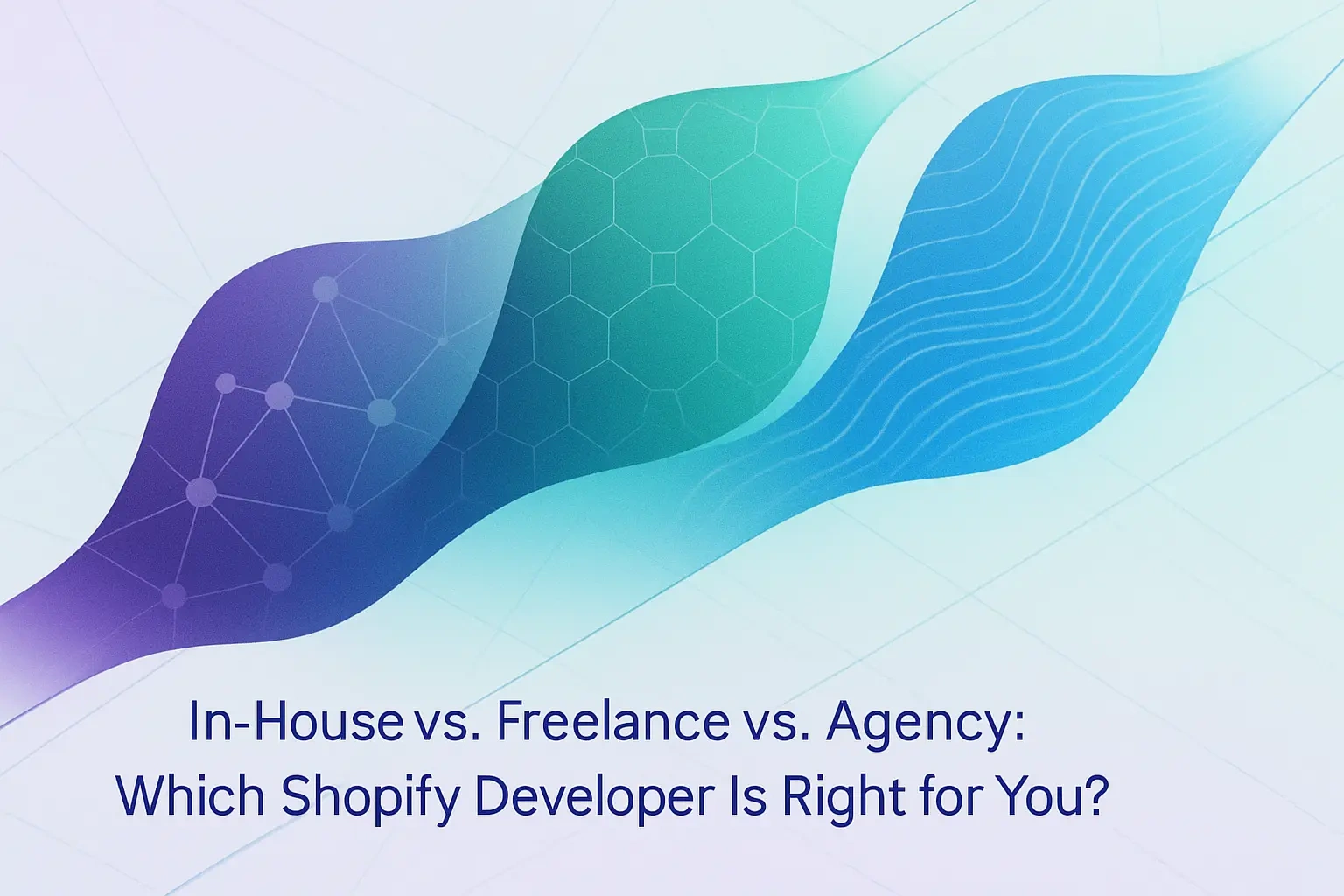In-House vs. Freelance vs. Agency: Which Shopify Developer Is Right for You?

In-House vs. Freelance vs. Agency: Which Shopify Developer Is Right for You?
The In-House Shopify Developer: A Full-Time Team Member
Pros: Deep Integration and Long-Term Focus
Cons: Higher Costs and Talent Acquisition Challenges
Best For: Businesses with Continuous, Complex Development Needs
The Freelance Shopify Developer: Flexible, On-Demand Expertise
Pros: Cost-Effectiveness and Specialized Skills
Cons: Potential for Communication Gaps and Limited Availability
Best For: Specific Projects, Startups, and Businesses Needing Flexibility
The Shopify Agency: A Comprehensive Team of Experts
Pros: A Full Suite of Services and Structured Process
Cons: Higher Cost and Less Personalization
Best For: Large-Scale Projects and Businesses Seeking Strategic Partnership
How to Choose: A Quick-Reference Comparison Table
Factor 1: Cost
Factor 2: Flexibility & Scalability
Factor 3: Scope of Expertise
Factor 4: Level of Involvement
Making Your Decision
References
In-House vs. Freelance vs. Agency: Which Shopify Developer Is Right for You?
The In-House Shopify Developer: A Full-Time Team Member
Pros: Deep Integration and Long-Term Focus
Cons: Higher Costs and Talent Acquisition Challenges
Best For: Businesses with Continuous, Complex Development Needs
The Freelance Shopify Developer: Flexible, On-Demand Expertise
Pros: Cost-Effectiveness and Specialized Skills
Cons: Potential for Communication Gaps and Limited Availability
Best For: Specific Projects, Startups, and Businesses Needing Flexibility
The Shopify Agency: A Comprehensive Team of Experts
Pros: A Full Suite of Services and Structured Process
Cons: Higher Cost and Less Personalization
Best For: Large-Scale Projects and Businesses Seeking Strategic Partnership
How to Choose: A Quick-Reference Comparison Table
Factor 1: Cost
Factor 2: Flexibility & Scalability
Factor 3: Scope of Expertise
Factor 4: Level of Involvement
Making Your Decision
References
Posted Jul 4, 2025
Hiring a Shopify developer? Discover the pros and cons of in-house teams, freelance experts, and agencies to make the best choice for your project, budget, and goals.







